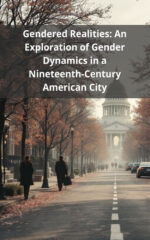Description
In this book, we explore the complex relationship between nationalism and identity. We examine the historical development of nationalism, the different ways in which it is expressed, and the challenges it poses to democracy, peace, and security.
We also consider the role of culture, religion, language, education, and media in shaping national identity. We ask how these factors contribute to a sense of belonging and purpose, and how they can be used to promote understanding and cooperation between different groups of people.
Finally, we look to the future of nationalism. We consider the challenges that nationalism faces in the 21st century, and we ask what kind of nationalism is possible in a globalized world.
This book is essential reading for anyone who wants to understand the world around them. It is a comprehensive and thought-provoking examination of one of the most important forces shaping our world today.
Nationalism is a complex and multifaceted phenomenon. It is a source of both pride and conflict, and it has had a profound impact on the course of human history. By understanding nationalism, we can better understand the world around us and the challenges that we face.
Nationalism is not simply a matter of pride in one’s country. It is also a powerful ideology that can be used to justify discrimination, violence, and war. In the 20th century, nationalism was a major factor in the rise of fascism and Nazism, and it continues to be a source of conflict in many parts of the world today.
In a globalized world, nationalism is facing a number of challenges. One challenge is the increasing interconnectedness of the world. People, goods, and ideas are moving across borders more easily than ever before, and this is leading to a greater awareness of the diversity of human experience. Another challenge is the rise of supranational organizations, such as the United Nations and the European Union. These organizations are working to promote cooperation between countries and to reduce the salience of national borders.
The future of nationalism is uncertain. Some believe that nationalism is in decline, while others believe that it is simply evolving. It is likely that nationalism will continue to play a role in world affairs for many years to come, but it is also likely that it will change in response to the challenges of the 21st century.
If you like this book, write a review!
Language : English
Dimensions : 6 x 9 inches
Pages : 191 pages
Pasquale De Marco stands as a prolific author whose literary prowess knows no bounds. With a passion for storytelling that transcends genres, he has made a name for himself as a versatile writer with the extraordinary ability to captivate readers across diverse literary landscapes. His journey as an author is marked by an insatiable curiosity, a love for the written word, and a relentless commitment to sharing knowledge and experiences with the world.
Pasquale De Marco collaborates with a dedicated team of ghostreaders who assist him in evaluating and editing the manuscripts. His collaborators are not only skilled professionals but also avid readers who purchase and read books as a personal hobby. This unique blend of creativity allows Pasquale to push the boundaries of traditional publishing, making literature more accessible and diverse.






Reviews
There are no reviews yet